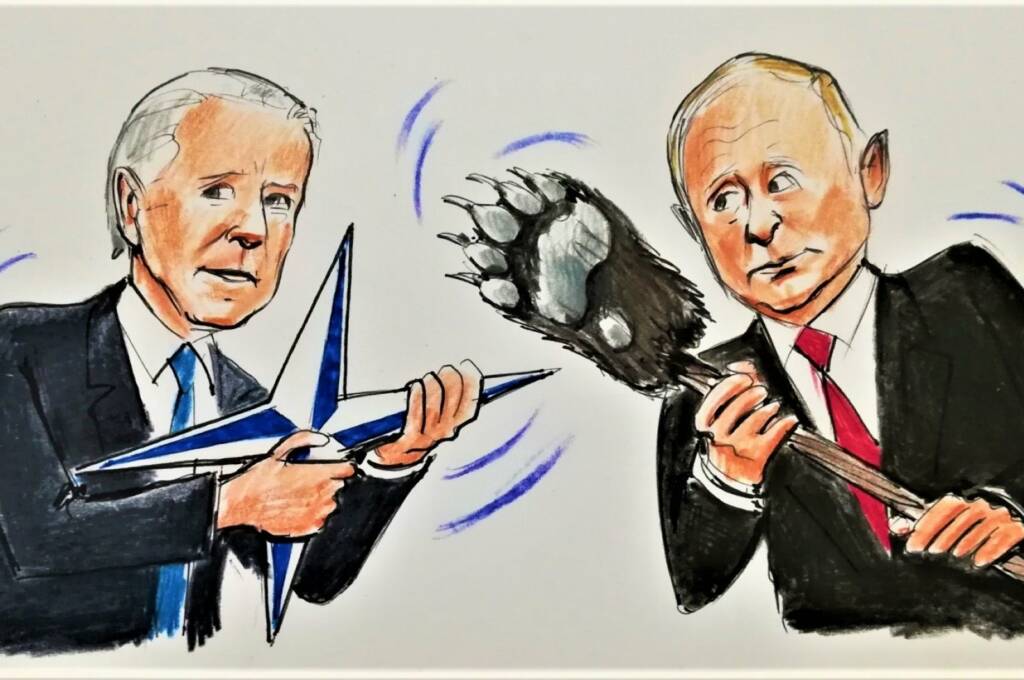Western sanctions on Russia have begun to falter even before the Kremlin could feel the pinch. This is indeed shocking for some observers in the West, including US President Joe Biden, who had predicted the Russian economy to fall to pieces and crash under the burden of Western “crippling” sanctions.
Nothing of that sort has happened so far. Instead, things have just started going back to normalcy in the Russian federation. One major sign of this normalcy came in the form of a rebound in the valuation of the Russian ruble.
The Russian Ruble is nearing its pre-invasion value.
Sanctions were designed to collapse its value. They failed. pic.twitter.com/OLmVIsS34E
— Clint Ehrlich (@ClintEhrlich) March 29, 2022
Observers noted that the ruble was fastly approaching its pre-invasion value due to recent steps taken by Russia to shore up its economy. Before the invasion, one US dollar’s value was equal to 70 rubles; today the number stands slightly above 80. Even experts suggest that the Western sanctions on Moscow are not comprehensive and have major loopholes that Russia can easily exploit.
Sanctions against Russia have been unprecedented in speed, the scale of targets, and international cooperation.
But they are NOT comprehensive. They remain a 7/10 or 8/10 in intensity, not a 10/10.
A few myths that require correcting (🧵):
— Eddie Fishman (@edwardfishman) March 29, 2022
Now, let’s look at the possible reasons for this epic failure of the Western sanctions on Russia.
- Overestimated Dollar’s strength: Well, the US and Europe had thought that taking off Russia from the SWIFT payment system would hamper Russia’s ability to trade in the international market. But, that turned out to be just wishful thinking. Major economies like China and India were quick to deploy alternative mechanisms; like setting up of a Yuan and Rupee denominated trading mechanism. The West came to realize the hard way that the Dollar was not in a position to render nations a pariah in the global financial systems.
- The US didn’t take its allies in confidence: Major US allies like the UAE, Saudi Arabia, India, the Philippines are not keenly following the USA’s lead in sanctioning Russia. Instead, they are taking a neutral position, thus giving Russia more legroom to circumvent the American sanctions. For example, India agreed to buy Russian oil in Rupee denominated currency and is also considered trading in Yuan with Russia. So, Russia is still trading with major economies only because it has failed to take major non-Western powers in its confidence.
- The China factor: For all those in the West seeking to flatten the Russian economy, China has emerged as constant pain in the neck. China has deployed various mechanisms to soften the blow of Western sanctions on Russia. Sky News reported that Putin is now turning to China to survive Western sanctions. Both nations have reaffirmed their commitments toward a stronger partnership, and are taking joint steps to further align their economies. Also, it was reported that a China-Iran money laundering nexus could also be exploited by Russia to evade Western sanctions. Meanwhile, USA’s and Europe’s warnings to China against helping Russia ease their sanctions have been all bark and no bite.
- JCPOA talks: Russia has effectively held the JCPOA revival talks hostage. Russia came up with some really hard conditions for the JCPOA talks to trudge ahead. Russia told the US that its sanctions on Russia should, in no way, hamper Russia’s trading ability with Iran. Now, if the US succumbs to these demands, Russia will be able to use Iran as a white channel to trade with non-Western economies, thus effectively cancelling all the Western sanctions on Russia.
- Russia’s ruble strike: Putin last week said in a televised speech that Russia would continue to supply natural gas to its European buyers but with a change in payment mechanism. He said, “The changes will only affect the currency of payment, which will be changed to Russian rubles.” The announcement had two major immediate impacts. Russia’s beleaguered currency reported a 10% spike against the US dollar, and gas prices in Europe were sent soaring. Now, EU buyers will first have to buy Russian rubles before buying Russian gas. This has ratcheted up the ruble’s demand in the international market, thus resulting in a strong rebound in the ruble’s valuation.
Read More: Putin’s ‘ruble strike’ cancels all Western sanctions on Russia
All in all, the Western sanctions are proving to be redundant against Russia. The sanctions need to be aggressively expanded if the West really wants to punish the Russian economy. But given the EU’s heavy reliance on Russian energy exports, such harsh measures are less likely to see the light of the day.
